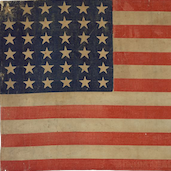HIST 1130: Introduction to the History of the United States
Professor Cameron Blevins (c.blevins@northeastern.edu)
Snell Engineering Center, Room 108
Mon/Wed/Thurs 9:15-10:20
Office Hours: Meserve Hall 237, Mon/Thurs 10:30-11:30
Teaching Assistants:
Cassandra Cloutier (cloutier.c@husky.neu.edu)
William Whitworth (whitworth.w@husky.neu.edu)
Course Description
What does it mean to be an American? How has the idea of the United States and the meaning of American identity changed in the past several centuries? What are some of the major issues, themes, and turning points that have shaped this process? These questions are at the heart of HIST 1130, which provides an overview of U.S. history from the 1600s to the present. This class is not your typical introductory history “survey.” So what makes this class different?
- This course will NOT attempt to “cover” everything that happened in U.S. history in a single semester. That would be impossible. Instead, we will be moving through different periods of American history by focusing on one topic or theme from that period at a time. This means that we will be skipping past major events and even entire decades of U.S. history. That’s okay!
- You will NOT be evaluated on how well you can memorize a series of events, people, and dates. Contrary to what you may have learned in high school, history is not “just one damn thing after another.” History isn’t about what happened; it’s about analyzing evidence and material from the past and then using that evidence to building larger interpretations, stories, and narratives. This course is focused on developing your ability to think historically rather than the accumulation of historical facts.
- You will NOT be a passive learner who sits back and receives information from a book or a professor. Most of the time you spend on this course (both inside and outside the classroom) will be spent on much more active, hands-on activities: taking on the persona of a historical character during a multi-week roleplaying game, trying to dissect real historical documents, or attending present-day events such as an detainee hearing at a federal immigration court or a Boston city council meeting. These experiences will help you arrive at your own answer to the question: what does it mean to be an American?
- You will NOT be learning just about the past. Throughout the semester, we will be connecting things that happened in the past to things that are happening today. The ultimate goal of this class is to equip you with the knowledge and skills to understand how American history continues to shape the present world.
Student Learning Outcomes
What will you learn by the end of the semester? This can be broken into two categories, Skills and Knowledge.
Skills
- Evidence: Put historical documents, materials, and other sources “on the witness stand” and interrogate them as potential evidence for understanding the past.
- Interpretation: Assemble evidence into interpretations, stories, or narratives about the past, taking into account things like causation, continuity and context.
- Empathy: Develop the ability to see the world from the perspective of other people in both the past and present.
Knowledge
- Major Themes: Become familiar with some of the key issues and topics in U.S. history and their significance for understanding both the past and present.
- Citizenship: Develop your own definition of what it means to be an “American” and how that idea has changed over time.
